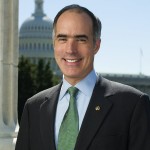State House Committee Holds Hearings on School Choice, Charter Schools
The State House Education Committee opened two days of informational hearing today on school choice and charter schools today. The state education secretary has laid out the Corbett administration’s views on school choice.
Ron Tomalis told the Committee we must ask ourselves why we force parents to send their children to a particular school rather than allow them to choose another school that might meet their needs. He says students in the lowest 5% of schools, based on the combined math and reading scores in the Commonwealth, should have the opportunity to use state funding to attend another public school or a participating nonpublic school.
Tomalis says the program must be targeted to students trapped in failing schools and be accountable to taxpayers. He says only the state portion of funding would follow the child. He says the administration believes choice needs to be phased in.
Tomalis says students taking advantage of choice should be held to standards and should be required to take an assessment to measure their academic achievement.
Tomalis says school choice is not just public to private. He says public to public choice is an important aspect of the choice program. He says they should promote the ability for students to transfer across district lines. He believes school districts will embrace the potential for public to public choice. But he says it would be difficult for him to support a mandate that schools participate.
Tomalis also told the committee the administration is looking at taking the growth of student achievement into account when identifying whether schools are hitting their targets. He says growth has to be part of the mix.
The head of the Pennsylvania State Teachers Association is questioning how the Corbett administration could support school vouchers. In a statement, James Testerman said “This kind of spending is reckless, ill-advised, and dangerous for the students who learn in Pennsylvania’s public schools.”
There are several school choice measures before the legislature, including Senate Bill 1 and several measures in the house.



















